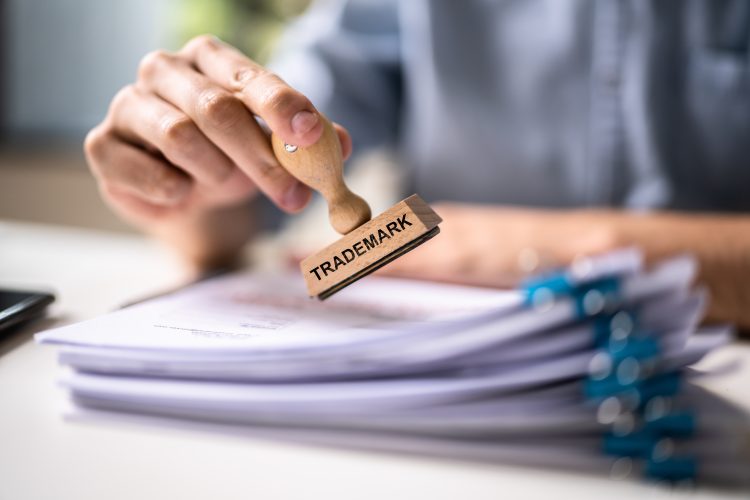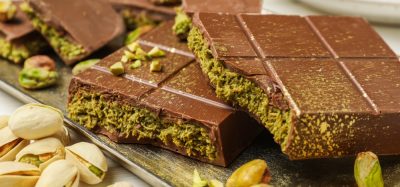Can The Craft Beer Co win a legal trade mark battle against M&S?
- Like
- Digg
- Del
- Tumblr
- VKontakte
- Buffer
- Love This
- Odnoklassniki
- Meneame
- Blogger
- Amazon
- Yahoo Mail
- Gmail
- AOL
- Newsvine
- HackerNews
- Evernote
- MySpace
- Mail.ru
- Viadeo
- Line
- Comments
- Yummly
- SMS
- Viber
- Telegram
- Subscribe
- Skype
- Facebook Messenger
- Kakao
- LiveJournal
- Yammer
- Edgar
- Fintel
- Mix
- Instapaper
- Copy Link
Posted: 24 April 2023 | Dale Carter | No comments yet
Dale Carter, Trade Mark Partner at Reddie & Grose, uses his trade mark expertise to assess whether accusations that Marks and Spencer has “ripped off” the Craft Beer Co hold weight.


In April 2023, retailer Marks & Spencer (M&S) removed a T-shirt it had on sale after the London Pub chain, The Craft Beer Co, accused it of “ripping off” its trademark name.
The T-shirt in question had the words “Craft Beer Co” printed in a graphic on both the front and back of the item of clothing, causing the London pub chain to take action against the well known retailer.
As reported by the BBC, M&S explained that it takes “intellectual property very seriously”, emphasising that the design of the T-shirt was made “in good faith”.
In an exclusive interview with New Food, Dale Carter, Trade Mark Partner at Reddie & Grose, uses his knowledge of trademark law to assess how robust The Craft Beer Co’s trade mark really is and explains how realistic it is that the pub chain can win the legal battle against the retail giant.
How robust is The Craft Beer Co’s trade mark?
Dale Carter (DC): How strong or robust a trade mark is depends on a number of factors. Three of the most important factors are:
- what the trade mark is used / registered for
- whether the mark describes the goods or services (or characteristics of those goods / services) that it is used or registered for
- where the trade mark is registered / used.
Registered trade mark rights are the most straightforward to enforce against infringers because a claim for infringement would be based on a registration for a defined mark covering defined goods and/or services.
Meanwhile, rights in a trade mark can accrue through use of in the UK. Such rights are more difficult to enforce against infringers because they must be shown to exist and this requires evidence of trading activity. Unregistered trade mark rights also tend to be narrower in scope than registered rights, again linked to the fact that unregistered rights are tied to the owners trading activity.
Talk us through M&S’ use of ‘Craft Beer Co’ on a T-shirt
DC: Let’s assume that The Craft Beer Co own a UK registered trade mark for ‘Craft Beer Co’ or, more likely, their Craft Beer Co logo covering ‘beers’ (scenario one). This would not be considered a robust trade mark, given the inherent weakness of the words ‘Craft Beer’ in relation to the goods in question.
The Craft Beer Co could attempt to take action to stop third parties using the same or a similar mark in relation to beer, but there is a descriptive use defence that they would need to be mindful of. As such, it is most unlikely that The Craft Beer Co would be able to stop a brewery or pub using the words ‘Craft Beer’ in relation to beers of that type based on an argument that consumers would be confused.
Could the pub chain realistically win in a legal battle against a retail giant like Marks & Spencer?
DC: It would likely be possible for The Craft Beer Co to succeed in an infringement action against M&S for a registration covering only ‘beer’, if they were able to prove that their registered trade mark enjoys a reputation in the UK. Trade marks with a reputation are afforded stronger protection and it would not be necessary for the goods that M&S were using the trade mark on to be the same or similar to the goods covered by the registration. Proving a reputation, however, is not a simple task. Trade mark infringement actions are costly and providing evidence of reputation to support this claim would increase the costs significantly.
In an alternative scenario, let’s assume that The Craft Beer Co own a UK registered trade mark for ‘Craft Beer Co’ or their Craft Beer Co logo covering ‘clothing’ (scenario two). This registration would be stronger and more robust that a registration for the same mark covering ‘beers’, because there is no direct connection between the words ‘Craft Beer’ and clothing. The Craft Beer Co would, on the face of it, have a stronger case to stop third parties using the same or a similar mark on clothing.
In the event that The Craft Beer Co do not currently own a registered trade mark, we imagine it would be difficult for them to enforce any unregistered rights they may own in ‘Craft Beer Co’ or their Craft Beer Co logo against M&S’s use of ‘Craft Beer Co’ on a T-shirt because of the different nature of the goods beer and clothing. However, factors that would assist The Craft Beer Co in a claim would include the following:
- M&S no longer sell only own-brand products – retailing third party products opens up the argument that consumers could be confused
- In the past M&S have sold third-party beer brands and commissioned special beers from known breweries and sold these via their store. Thus, M&S have a history of collaborating with beer manufactures. Therefore, it is possible that consumers may believe the T-shirts with ‘Craft Beer Co’ were linked to a certain brewery and thus, consumer confusion may arise if they are under the false impression that there is a link between M&S and The Craft Beer Co.
The success of any trade mark infringement and passing off case varies based on the facts of the case. Given that M&S have collaborated with third-party beer manufacturers in the past, there is an argument that consumer confusion could arise – something that would work in The Craft Beer Co’s favour.
However, we note that M&S have now removed the T-shirts from sale – perhaps they have taken this course of action to minimise the risk of negative PR. Or, it is possible that M&S did not conduct in-house clearance searches prior to launch and the decision to cease sales of the offending T-shirts is to minimise the risk of infringement and to allow time to assess the legal risk.
Biography:
Dale Carter, Trade Mark Partner at Reddie & Grose has extensive experience in trade mark management, trade mark prosecution and in the conduct of trade mark disputes. Dale joined Reddie & Grose in January 2017 from an IP specialist Law Firm. Before that Dale spent 5 years working as an in-house Trade Mark Advisor in the UK for Nestlé, the world’s largest nutrition, health and wellness company.
Related topics
Regulation & Legislation, retail, Supermarket, Trade & Economy








